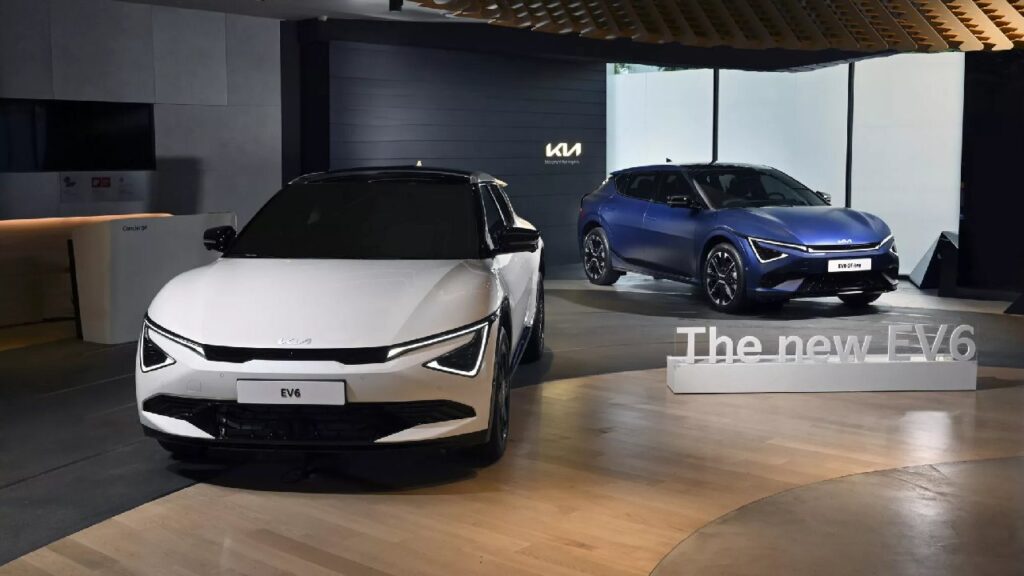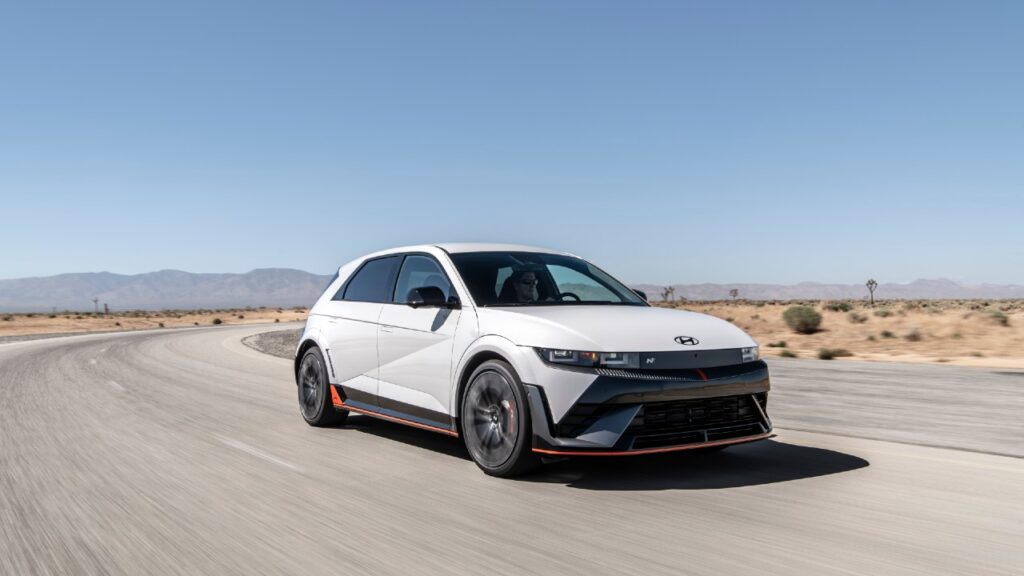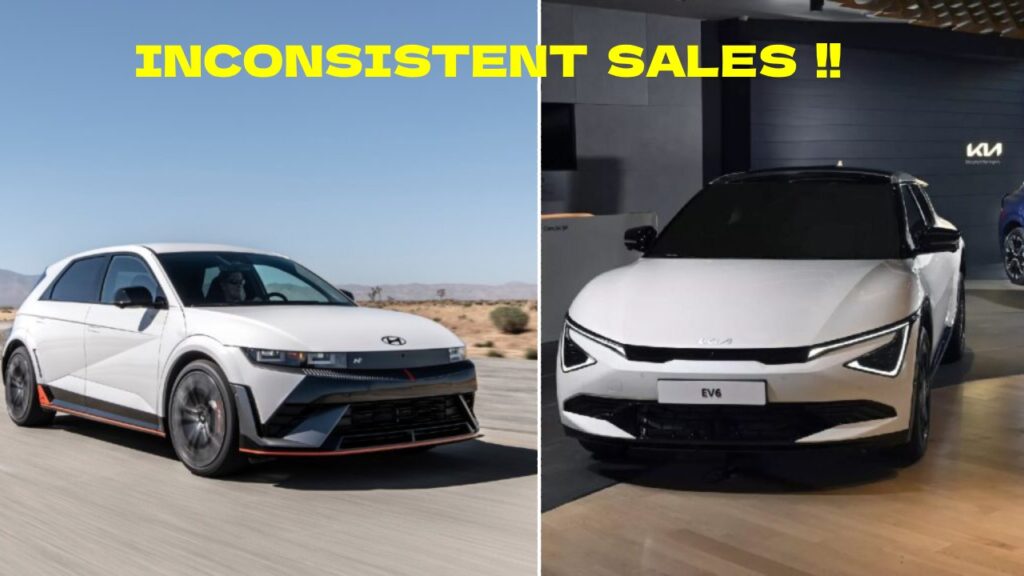The EV sales and demand have been sporadic and inconsistent in most parts of the world in the last year.
The global EV sales of Kia and Hyundai displayed opposite trends after the first half of 2024. The Korean giants are among the top legacy carmakers to have made successful electric cars. What is even more impressive is the fact that they are not concentrated in one region of the world. Both these car marques sell electric cars in multiple countries across continents. Let us glance at the details of the sales figures of these globally.

You might also like: Kia EV3 Breaks Cover – All You Need To Know
Kia Global EV Sales
For the month of June 2024, Kia recorded its global EV sales to be 17,603 units. This represents 7% of its total sales. This is around 49% higher than the same month last year, as per some estimates. In the second quarter of 2024, Kia achieved a new record of selling 54,150 units. In total, the H1 2024 sales of Kia EVs are over 98,000. Also, the wholesale shipments of E-GMP-based Kia EVs amounted to over 61,000 (year-to-date). This marks an 8% rise on a y-o-y basis. The total global EV sales constitute EV5, EV6, EV9, Niro EV, Niro Plus EV, Soul EV and Korea-specific Ray EV and Bingo EV.
I must mention here that “Kia reports wholesale sales on the manufacturer level or plant sales—unless otherwise specified, the numbers are unaudited and on a preliminary basis“. Interestingly, Kia’s highest-selling electric car, the EV6, displayed a decline in year-on-year sales for the fifth time. However, this will probably change once the updated version is launched. Kia’s wholesale BEV sales year-to-date are as follows:
- EV5 – 5,046 units
- EV6 – 38,597 units
- EV9 – 17,498 units
- Total E-GMP BEVs – 61,170 units
Hyundai Global EV Sales
In this section, we will consider Hyundai and Genesis together. In the first half of 2024, Hyundai witnessed a significant 30% decline in global EV sales in comparison to the H1 2023. Talking about June 2024, Hyundai and Genesis shipped 21,028 units of their plug-in cars. This is a whopping 34% decline on a year-on-year basis. The wholesale volume of Hyundai BEVs decreased by 34% to 16,193 units in June.
In total, the plug-in car wholesale shipments total 122,120 units year-to-date for Hyundai and Genesis. This is 30% lower than the same time last year. On the other hand, the Hyundai BEV wholesale shipments were 96,742 year-to-date. This is a noticeable 28% down from the same period last year. The only silver lining is the 52% increase in EV sales in the first half of the year in the U.S. The wholesale sales year-to-date are as follows:
- Hyundai BEVs – 96,742 units (-28%)
- Genesis BEVs – 5,440 units (-53%)
- Hyundai PHEVs – 19,938 units (-30%)

You might also like: Hyundai Delays The Debut Of Its Ioniq 9 Flagship Electric SUV
Learn Electric Cars Says
The fact that two of the most successful EV makers in the world are having to experience uncertain sales across the globe is an unequivocal representation of the trends. We know that the EV growth is slowing down. This is true for some parts of the world like the U.S., China and Europe. But many new nations are joining the EV revolution with each passing year. Hence, the sales trends are unpredictable at the moment.
That is exactly what the EV sales statistics of Kia, Hyundai and Genesis demonstrate. It has been the case with all other carmakers too. The sales have been inconsistent. I believe despite the number of EVs being at an all-time high and new countries joining the fray, the overall industry is still at a relatively nascent stage. This is due to concrete challenges preventing mass adoption. Until EVs become household names, it is difficult to accurately predict the sales of EVs. We will still keep a close eye on future sales trends.

